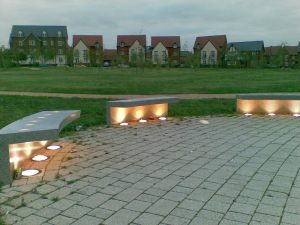 The Wolfson Economic Prize is a relatively new economics competition organised and funded by Simon Wolfson, Baron Wolfson of Aspley Guise, and run by the Policy Exchange think tank. The first Prize was run in 2012 and asked entries to submit proposals as to how the Eurozone could be safely dismantled. It attracted 425 entries from across the world, and was was submitted by the team led by Roger Bootle from Macroeconomics research consultancy firm Capital Economics, entitled Leaving the Euro: A Practical Guide.
The Wolfson Economic Prize is a relatively new economics competition organised and funded by Simon Wolfson, Baron Wolfson of Aspley Guise, and run by the Policy Exchange think tank. The first Prize was run in 2012 and asked entries to submit proposals as to how the Eurozone could be safely dismantled. It attracted 425 entries from across the world, and was was submitted by the team led by Roger Bootle from Macroeconomics research consultancy firm Capital Economics, entitled Leaving the Euro: A Practical Guide.
A second prize was launched in November 2013. The subject of the prize has been hotly debated for some time, and remains a topic of political and professional debate in response to one of the major issues facing this country at the current time; the housing crisis. The question posed by the prize organisers was, “How would you deliver a new Garden City which is visionary, economically viable, and popular?”.
Garden cities were first established in Hertfordshire, at Letchworth and then Welwyn, and have been one of the greatest achievements of town and country planning. Their success, largely acknowledged in hindsight, prompted the development of the new towns in Britain in the post war years, which arguably culminated in the most complete and best realised form at Milton Keynes. There’s an affection for garden cities at the moment – the Coalition Government revived the idea in designating Ebbsfleet earlier this year, and they also published a prospectus to promote the idea amongst local authorities or similar partnerships following that announcement. A recent poll conducted by the Policy Exchange suggests support for garden cities is high across the board.
My wife and I decided to enter the competition, and we spent many hours between November and the closing date in early March mulling over the issues, the possible solutions and scenarios and our many ideas for a beautiful, fully realised future city based on the garden cities principle. It all culminated in mad weekend where we toiled on our submission for a joint total of 40 hours to get the thing completed and submitted. We were inspired by Milton Keynes, and tried to be creative in expressing our vision, using a time travelling Mayor to express his delight at having lived in our garden city for a quarter of a century, since moving there in 2021. We pondered what it meant to be popular and visionary – can there be such a thing? – and defined our garden city as something very different to that which is almost embarrassingly proposed at Ebbsfleet.
And today, you can see our entry published by the judges. Amongst 279 entries, our was highly commended and was recognised,
“for a financially-aware and credible proposal with a very clear survey of relevant financial issues. The Judges enjoyed this entry’s introspection into the definition of key terms in the Prize Question and the way it presented a vision of the future through the eyes of the city’s future Mayor. They felt it was a human proposal designed for people”.
We cannot express how chuffed we are.






